The Economist - 民族主义 走向危险的道路

CHINA / NATIONALISM
Heading down a dangerous path
By fostering an ugly nationalism, Xi Jinping is making China and the world less safe
中国 / 民族主义
走向危险的道路
通过培养丑陋的民族主义,希望正在让中国和世界变得不那么安全
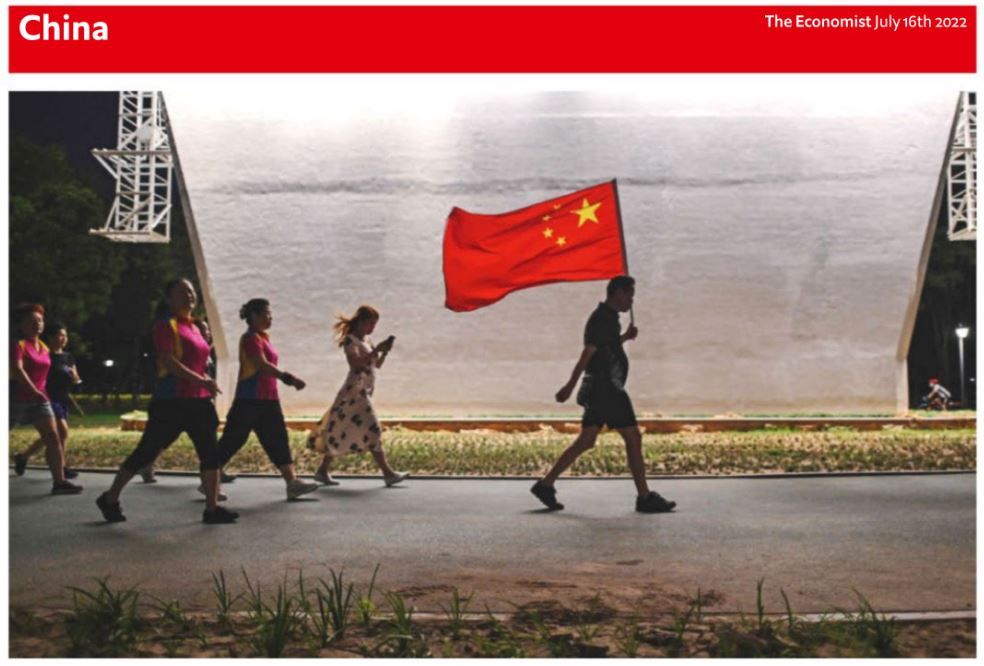
“A BE IS DEAD and that’s it,” a social-media user called Zhang Beihai wrote to her 2.6m followers on Weibo, a Twitter-like platform. “He deserved to perish.” Another Weibo user went further: “His whole family deserves to die.” The assassination of Abe Shinzo, Japan’s former leader, on July 8th elicited a wave of joyous reactions online in China, where he was widely reviled. “News just in,” quipped one. “US President Kennedy meets Japanese Prime Minister Abe Shinzo.”
“安倍死了,就是这样,”一位名叫张北海的社交媒体用户在类似推特的平台微博上给她的260万粉丝写信。 “他活该死。” 另一位微博用户更进一步:“他全家活该死。” 日本前领导人安倍晋三于 7 月 8 日遇刺,在中国网上引起了一波热烈的反响,他受到了广泛的谴责。 “新闻刚刚进来,”一个人打趣道。 “美国总统肯尼迪会见日本首相安倍晋三。”
Japan is a common target of the nationalists who dominate China’s digital high ground. From an early age Chinese are taught to resent the country for its invasion of China in the 1930s and 1940s, and for the atrocities it committed. Mr Abe was disliked for visiting the Yasukuni shrine in Tokyo, where war criminals are honoured, and for expressing support for Taiwan, which China regards as its territory. One commenter on Weibo said she would “applaud” if the whole of Japan were to “sink to the bottom of the sea”.
日本是主导中国数字高地的民族主义者的共同目标。 中国人从小就被教导憎恨国家在 1930 年代和 1940 年代对中国的入侵,以及它所犯下的暴行。 安倍不喜欢参拜供奉战犯的东京靖国神社,以及表达对中国视为其领土的台湾的支持。 一位微博评论说,如果整个日本“沉入海底”,她会“鼓掌”。
But Japan is only one of many targets. The nationalists scorn America, all of its friends, and Chinese people they deem to be pro-Western. Their vitriol rarely suffers the censorship to which liberal sentiment is routinely subjected. Some of China’s biggest online celebrities are nationalists whose social-media accounts attract millions of followers. Mobs quickly form online, using microblogs, short videos and messaging apps to wage furious verbal campaigns against “traitors”, “spies” and “secondary devils” (Chinese who collaborate with foreign enemies).
但日本只是众多目标之一。 民族主义者蔑视美国及其所有的朋友,以及他们认为亲西方的中国人。 他们的尖酸刻薄很少受到自由主义情绪经常受到的审查。 中国一些最大的网红是民族主义者,他们的社交媒体账户吸引了数百万粉丝。 暴徒在网上迅速形成,利用微博、短视频和消息应用程序对“叛徒”、“间谍”和“次要恶魔”(与外国敌人合作的中国人)发动激烈的口头运动。
Fang Fang became an object of nationalist ire in 2020, when she wrote the 60th and final instalment of an internet diary about life in Wuhan in central China when the pandemic began. Her journal had described not only the hardships of the world’s first city to experience a covid-19 lockdown, but also her own. For daring to criticise the government’s bungled response, she was subjected to a torrent of online abuse from nationalists. “They behave like a pack of thugs,” Fang Fang fumed, “attacking anyone who fails to cooperate with them, launching wave after wave of attacks.” She compared the onslaught to Mao’s Cultural Revolution of the 1960s and 1970s with its murderous Red Guard mobs. “Today I even saw news that people are preparing to send a squad to Wuhan to kill me,” she wrote in April 2020 as the furore swelled.
方方在 2020 年成为民族主义愤怒的对象,当时她撰写了关于武汉肺炎大流行开始时在中国中部武汉的生活的网络日记的第 60 期也是最后一期。 她的日记不仅描述了世界上第一个经历武汉肺炎封锁的城市的艰辛,也描述了她自己的艰辛。 由于敢于批评政府的反应迟钝,她遭到了民族主义者的大量在线辱骂。 “他们就像一群打手,”方方怒道,“谁不配合他们,谁就攻击谁,一波又一波的攻击。” 她将这次袭击比作腊肉在 1960 年代和 1970 年代的文化大革命及其凶残的红卫兵暴徒。 “今天我什至看到有人准备派小队去武汉杀我的消息,”她在 2020 年 4 月的愤怒中写道。
Such nationalism worries not only liberals such as Fang Fang, a former member of China’s literary aristocracy. It has also raised anxiety in the West and among many of China’s neighbours. Foreign observers see it as a reflection of the Communist Party’s own mindset, and wonder whether it could portend more aggressive behaviour by China abroad.
这种民族主义不仅让自由派人士担心,比如曾是中国文学贵族的方方。 这也引起了西方和许多中国邻国的焦虑。 外国观察家将其视为共产党自身心态的反映,并想知道这是否预示着中国在海外的更具侵略性的行为。
American officials avoid pointing fingers at China when talking about the growth of nationalism in authoritarian countries—but it is on their minds. In a national-security directive published in March 2021, President Joe Biden said “America’s fate” was becoming increasingly linked to events abroad. “We face a world of rising nationalism, receding democracy, growing rivalry with China, Russia and other authoritarian states,” he said. His secretary of state, Antony Blinken, made a similar point two months later. “Nationalism is resurgent, repression is rising…and attacks against the rules-based order are intensifying,” he told a virtual meeting of the UN Security Council. He was clearly thinking of China.
美国官员在谈论威权国家民族主义的增长时避免指责中国——但这是他们的想法。 在 2021 年 3 月发布的国家安全指令中,总统乔·拜登表示,“美国的命运”正越来越与国外事件联系在一起。 “我们面临着一个民族主义抬头、民主衰退、与中国、俄罗斯和其他威权国家的竞争日益加剧的世界,”他说。 两个月后,他的国务卿安东尼·布林肯 (Antony Blinken) 也提出了类似的观点。 “民族主义正在死灰复燃,镇压正在上升……对基于规则的秩序的攻击正在加剧,”他在联合国安理会的一次虚拟会议上说。 他显然想到了中国。
Russia’s invasion of Ukraine appeared to vindicate some of America’s anxieties. Western officials now wonder whether nationalism in China—both the leadership’s and that of the Chinese public—may lead it down a similar path. They worry most about the fate of democratic Taiwan. Taking control of the island has been a project of Chinese nationalism since 1949, when the Communist Party seized power on the mainland, forcing the defeated Nationalist Party, or Kuomintang (KMT), to flee to Taiwan. In 2017 China’s leader, Xi Jinping, said the country’s “complete reunification” was an “inevitable requirement for realising the great rejuvenation of the Chinese nation”, which he has said should be completed by mid-century. Like his predecessors, he has not ruled out using force.
俄罗斯入侵乌克兰似乎证明了美国的一些焦虑。 西方官员现在想知道中国的民族主义——无论是领导层的还是中国公众的——是否会导致它走上类似的道路。 他们最担心民主台湾的命运。 自 1949 年共产党在大陆夺取政权,迫使被击败的国民党或国民党(国民党)逃往台湾以来,控制该岛一直是中国民族主义的项目。 2017年,中国领导人希望表示,国家“完全统一”是“实现中华民族伟大复兴的必然要求”,他说应该在本世纪中叶完成。 和他的前辈一样,他也不排除使用武力。
How much will nationalism shape Mr Xi’s decisions about whether to attack Taiwan? Or to use military muscle against other countries with which China has territorial disputes? They are numerous. China claims the Japanese-controlled Senkaku islands (known in China as the Diaoyu) in the East China Sea. It claims parts of the South China Sea also claimed by five other countries. It disagrees with India as to where their 3,400km border lies (see map). In meetings with foreign counterparts, Chinese officials sometimes point to public sentiment on such matters as a force that they must contend with when devising policy. Are they overegging it?
民族主义会在多大程度上影响希望关于是否攻打台湾的决定? 还是对其他与中国有领土争端的国家动用武力? 它们数量众多。 中国对东海日本控制的尖阁诸岛(在中国称为钓鱼岛)拥有主权。 它声称南海的部分地区也被其他五个国家声称拥有。 它与印度不同意他们 3,400 公里的边界在哪里(见地图)。 在与外国同行的会晤中,中国官员有时会指出公众对此类问题的看法是他们在制定政策时必须与之抗衡的一股力量。 他们是不是夸大其词了?
Sending hate across the Strait
在海峡两岸发送仇恨
China’s nationalists are certainly becoming more easily aroused and quick to demand tough action against perceived enemies, especially Taiwan’s China-sceptic leadership. Following Mr Abe’s death, Sima Nan, one of China’s best-known nationalists, with nearly 3m followers on Weibo, mused online about whether it would be right to assassinate Taiwan’s president, Tsai Ing-wen. “The peaceful liberation of Taiwan is the desire of all Chinese people,” he wrote. “If stabbing Tsai Ing-wen to death could bring about peaceful unification, wouldn’t people be overjoyed?”
中国的民族主义者当然更容易被激起,并迅速要求对所谓的敌人采取强硬行动,尤其是台湾对中国持怀疑态度的领导层。 安倍去世后,中国最著名的民族主义者之一司马南在微博上拥有近 300 万粉丝,他在网上思考暗杀台湾总统蔡英文是否正确。 “台湾的和平解放是全体中国人民的愿望,”他写道。 “如果刺死蔡英文能带来和平统一,人们岂不是大喜过望?”
Videos have circulated on Weibo in which two nationalists go further, arguing that China should seize the opportunity now, while America is distracted by Ukraine, to launch a military assault. It could finish the job in three days, says one of them, Li Yi, an academic who has 43,000 subscribers on YouTube and thousands of followers on Weibo. Mr Li gives talks in China about his belief that peaceful unification with Taiwan—still the party’s official aim—is unattainable. One of his recent lectures on this theme was given at a training academy for officials run by a district-level party committee in Beijing.
微博上流传着两名民族主义者走得更远的视频,他们认为中国应该抓住机会,趁着美国被乌克兰分心,发动军事进攻。 它可以在三天内完成这项工作,其中一位学者李毅说,他在 YouTube 上有 43,000 名订阅者,在微博上有数千名粉丝。 李毅在谈到中国时,表示他相信与台湾和平统一——仍然是党的官方目标——是不可能实现的。 他最近的一次关于这个主题的演讲是在北京一个区级党委开办的官员培训学院进行的。
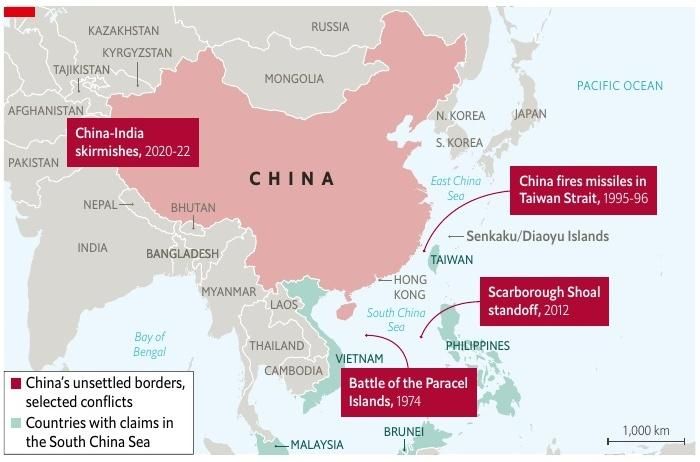
But Mr Li’s opinions are controversial, even within the establishment. In 2020 Qiao Liang, a hawkish former general, published an unusual rebuke to those who have been demanding an invasion of Taiwan. No government decision, he said, is made merely on the basis of public views. “Restraining factors must first be considered.” He wrote that doing otherwise “may be patriotic in name, but harm the country in practice”. Hu Xijin, a former editor of the Global Times, a chest-thumping tabloid in Beijing, suggested in a recent vlog that public opinion would not goad China into action. “If we think that the time isn’t ripe for resolving the Taiwan problem militarily,” he said, “no force can compel us to start a conflict.”
但李毅的观点是有争议的,即使在建制派内部也是如此。 2020年,鹰派前将军乔亮对那些一直要求入侵台湾的人发表了不同寻常的斥责。 他说,任何政府决定都不是仅仅根据公众意见做出的。 “首先要考虑制约因素。” 他写道,否则“可能名义上是爱国,但实际上会损害国家”。 前北京小报《环球时报》的编辑胡锡进在最近的一段视频博客中暗示,舆论不会促使中国采取行动。 “如果我们认为从军事上解决台湾问题的时机还不成熟,”他说,“没有任何力量可以迫使我们开始冲突。”
China’s popular nationalism has partly been shaped by the party itself. After it crushed the Tiananmen Square protests of 1989 it ramped up the teaching of “patriotism”, which, officials insist, involves loving the party as well as the country. Since then, schools have been required to stress the humiliation China suffered at the hands of foreigners before the party seized power, going back to the opium wars launched by Britain in the 19th century. The aim is to inculcate a sense of victimhood, and gratitude to the party for making China strong again. It has helped the party’s case that the country has enjoyed rapid economic growth for most of the past three decades. So, too, has Mr Xi’s more assertive approach to foreign policy and a strong perception among many Chinese, especially since the global financial crisis of 2007-09, that the West is in decline.
中国流行的民族主义部分是由党本身塑造的。 在镇压 1989 年天安门广场抗议活动后,它加大了“爱国主义”的宣传力度,官员们坚称,爱国主义既爱党又爱国家。 从那时起,学校就被要求强调中共夺权前中国在外国人手中遭受的屈辱,这可以追溯到 19 世纪英国发动的鸦片战争。 其目的是灌输一种受害意识,并感谢党让中国再次强大。 在过去 30 年的大部分时间里,该国经济快速增长,这有助于该党的观点。 希望对外交政策更加自信的态度也是如此,许多中国人强烈认为西方正在衰落,尤其是自 2007-09 年全球金融危机以来。
For now the party still appears capable of controlling popular nationalism to suit its purposes. Before Mr Xi took over in 2012, it occasionally permitted large-scale protests against Western countries, in part to give China diplomatic advantage by showing how much Western interests in China stood to suffer. In 1999 officials bused students to Beijing’s embassy district to stage demonstrations outside the American and British missions after NATO’s bombing of the Chinese embassy in Serbia (China does not accept that this was an accident). In the months leading up to Mr Xi’s assumption of power the party tolerated numerous anti-Japanese protests over the contested Senkakus.
就目前而言,该党似乎仍有能力控制民众民族主义以适应其目的。 在希望 2012 年上台之前,它偶尔会允许针对西方国家的大规模抗议活动,部分是为了通过展示西方在中国的利益将遭受多大损失,从而为中国提供外交优势。 1999 年,北约轰炸中国驻塞尔维亚大使馆后,官员们用巴士将学生送到北京使馆区,在美国和英国使馆外举行示威(中国不承认这是一次意外)。 在希望上台前的几个月里,该党容忍了无数针对有争议的尖阁诸岛的反日抗议活动。
Mob rules
暴民规则
But Mr Xi appears more nervous than his predecessors. While fostering the online variety, he has kept real-world nationalism on a much tighter rein. Mr Xi’s hard line on NGOs applies almost as much to those dedicated to nationalist causes as it does to ones that champion civil rights. Nothing has been allowed in China that is comparable to Russia’s thuggish nationalist youth group, Nashi (Ours), which flourished for a few years with the Kremlin’s blessing. For all the death threats that fly around online, there have been no reports of anyone being killed by nationalist protesters, which suggests that officials do not want such violence. Fang Fang and Mr Xi are in their late 60s. Their worldviews may be very different, but both have memories of the Cultural Revolution, which traumatised people across the political spectrum. Mr Xi and his father were denounced by Red Guards. A half-sister of Mr Xi was “persecuted to death”, according to an official account.
但希望似乎比他的前任更紧张。 在培养网络多样性的同时,他更严格地控制了现实世界的民族主义。 希望对非政府组织的强硬立场几乎同样适用于那些致力于民族主义事业的人,也适用于那些捍卫民权的人。 在中国,没有任何东西可以与俄罗斯民族主义青年团伙“纳西”(我们的)相提并论,后者在克里姆林宫的加持下蓬勃发展了几年。 对于网上流传的所有死亡威胁,没有任何人被民族主义抗议者杀害的报道,这表明官员们不希望出现这种暴力行为。 方方和希望已经 60 多岁了。 他们的世界观可能大相径庭,但都对文化大革命有记忆,文化大革命给不同政界的人们带来了创伤。 希望和他的父亲遭到过红卫兵的谴责。 据官方报道,希望的一个同父异母的妹妹被“迫害致死”。
In 2017 the party allowed a scattering of demonstrations against South Korea over the deployment of an American anti-missile system called THAAD, which China said would threaten its security. But in the decade since Mr Xi took over, there have been no big nationalist protests on the streets. More than ever, stability has been the party’s watchword. In the build-up to a five-yearly party congress which is expected to take place late this year officials have become even twitchier. Recent efforts in Henan province to deter demonstrations by account-holders in failed banks have shown how nervous they are (see next story). Since Mao’s day there have been no known demonstrations relating to Taiwan. That is clearly because the party does not want bellicose crowds to complicate a relationship that could embroil China in a nuclear conflict with America.
2017 年,该党允许针对韩国部署名为“萨德”的美国反导系统进行零星示威,中国称该系统将威胁其安全。 但在希望上台后的十年里,街头没有发生过大规模的民族主义抗议活动。 稳定比以往任何时候都更成为该党的口号。 在预计将在今年晚些时候举行的五年一度的党代会上,官员们变得更加紧张。 河南省最近为阻止村镇银行储户示威的努力表明了他们的紧张程度(见下一个故事)。 自腊肉时代以来,没有任何已知的与台湾有关的示威活动。 这显然是因为该党不希望好战的人群使可能使中国卷入与美国的核冲突的关系复杂化。
During the pandemic, however, the party has propelled popular nationalism to new heights. Its propagandists speak of “the West’s chaos and China’s order”—a line that at least until recently has resonated with many Chinese who appreciated the party’s huge effort to keep the virus out of the country and to deploy legions of people to contain outbreaks at home. As a result of this vigilance, the death toll was kept extremely low and most Chinese were able to go about their lives much as normal.
然而,在大流行期间,该党将民众的民族主义推向了新的高度。 它的宣传者谈到“西方的混乱和中国的秩序”——至少直到最近,许多中国人都对这一说法产生了共鸣,他们赞赏中共为将病毒拒之门外并部署大批人员控制国内疫情爆发所做的巨大努力 . 由于这种警惕,死亡人数保持在极低水平,大多数中国人能够过上正常的生活。
But recently the mood has changed. Nationalism is no longer proving such an effective social glue. The Omicron variant of the coronavirus has been much harder to curb; lockdowns have become far more frequent. Shanghai and several other big cities have suffered weeks of draconian restrictions. Many people have protested online, accusing officials in locked-down areas of failing to provide enough help with food supplies and of making it life-threateningly difficult to get treatment other than for covid. Universities have been quiet for most of the Xi era. In May, however, frustrated students on several campuses staged small demonstrations against quarantine rules. Some netizens have been daring to say that Fang Fang got it right.
但最近心情变了。 民族主义不再被证明是一种有效的社会粘合剂。 武汉肺炎的 Omicron 变体更难控制。 封锁变得更加频繁。 上海和其他几个大城市已经遭受了数周的严厉限制。 许多人在网上抗议,指责封锁地区的官员未能在食品供应方面提供足够的帮助,并且使除了武汉肺炎以外的其他保命治疗难以持续。 在希望时代的大部分时间里,大学一直很安静。 然而,在 5 月,几个校园里沮丧的学生举行了反对隔离规定的小型示威活动。 有些网友都敢说方方做对了。
So worried have officials become that in April, during a two-month lockdown in Shanghai, Weibo censored posts containing the first line of the national anthem: “Arise, ye who refuse to be slaves.” Recently Weibo users have again been posting that line, this time with pictures of officials dispersing protesters in Henan.
官员们如此担心,以至于 4 月,在上海为期两个月的封锁期间,微博审查了包含国歌第一句的帖子:“起来,拒绝做奴隶的人。” 最近,微博用户再次发布了这条线,这次是河南官员驱散抗议者的照片。
Mr Xi knows how difficult it sometimes can be to keep patriots on message. The Tiananmen Square protests of 1989 were a dramatic example. Students took to the streets chanting “patriotism is no crime.” They described their actions as a “patriotic, democratic movement”—hoping that highlighting their love of China would help to temper the party’s hostility. Their tactics worked, for a while, as leaders bickered over whether or not to acknowledge the students’ patriotism. During the anti-Japanese protests of 2012 some demonstrators held up portraits of Mao. They were fans of Bo Xilai, a regional leader who had been arrested after a power struggle with Mr Xi. Mr Bo had tried to build support by appealing to nostalgia for the Mao era (those parts of it that did not involve gang violence). He was sentenced to life in prison in 2013.
希望知道,有时让爱国者传达信息是多么困难。 1989 年的天安门广场抗议就是一个戏剧性的例子。 学生走上街头高呼“爱国主义不是犯罪”。 他们将自己的行为描述为“爱国、民主的运动”——希望突出他们对中国的热爱有助于缓和党的敌意。 他们的策略在一段时间内奏效了,因为领导们为是否承认学生的爱国主义而争吵不休。 在 2012 年的反日抗议活动中,一些示威者高举腊肉的画像。 他们是地区领导人薄熙来的粉丝,他在与希望的权力斗争后被捕。 薄熙来试图通过唤起对腊肉时代的怀念(其中不涉及帮派暴力的那些部分)来建立支持。 2013年,他被判处无期徒刑。
For the party, online nationalism is a useful tool for crushing dissent—liberals are quickly leapt upon by nationalist trolls. But it is a murky world with pitfalls for the party, too. The neo-Maoists have long since suppressed their ardour for Mr Bo (supporting him would be far too risky under Mr Xi). However they remain vocal online, as cheerleaders for nationalist causes but also as critics of China’s social ills, such as the big gap between rich and poor, corruption and the “exploitation” of migrant workers from the countryside. In 2018 the police arrested several neo-Maoist student activists who had been campaigning for better conditions for factory workers.
对党来说,网络民族主义是镇压异议的有用工具——自由主义者很快就会被民族主义的喷子扑上去。 但这是一个阴暗的世界,党也存在陷阱。 新腊肉派早就压制了他们对薄熙来的热情(在希望领导下支持薄熙来风险太大)。 然而,他们仍然在网上发声,作为民族主义事业的拉拉队队员,同时也批评中国的社会弊病,例如贫富差距、腐败和对农民工的“剥削”。 2018 年,警方逮捕了几名一直在为工厂工人争取更好条件的新腊肉派学生活动人士。
Maoist to the max
毛主义到极致
The online Maoists snipe at those they regard as being on the side of the “bureaucrat capitalists” who hold sway over business and politics. One of their bêtes noires is Mr Hu, the former editor of the Global Times who, with 24.5m followers on Weibo, is probably the most famous of China’s online nationalists. To the neo-Maoists, he is not nationalist enough. They have excoriated him for appealing to netizens to be on their guard when responding to Mr Abe’s death. Too much cheering over it has been exploited by China’s critics to “blacken” the country, he argued in his vlog.
网络上的腊肉主义者对那些他们认为站在掌控商业和政治的“官僚资本家”一边的人嗤之以鼻。 他们最喜欢的人之一是《环球时报》前主编胡先生,他在微博上拥有 2450 万粉丝,可能是中国最著名的网络民族主义者。 对于新腊肉主义者来说,他还不够民族主义。 他们谴责他呼吁网民在回应安倍晋三的死讯时保持警惕。 他在自己的视频博客中辩称,中国的批评者利用了太多的欢呼来“黑化”这个国家。
There is a commercial aspect to China’s online nationalism that must also make it tricky to assess where the public truly stands. Online influencers, who earn money by using social media to draw attention to sponsors’ products, use nationalism as clickbait. People are drawn by the conspiracy theories that influencers peddle about, say, American military involvement in creating and spreading covid (disinformation that Chinese officials have eagerly encouraged to dampen speculation in the West about whether the virus may have leaked from a lab in Wuhan). Given the heavy censorship of so many subjects online, some netizens may revel in nationalist mudslinging simply because of the freedom they are given to do so. Bashing liberals carries no risks.
中国的网络民族主义有一个商业方面,这也使得评估公众的真实立场变得很棘手。 通过使用社交媒体吸引对赞助商产品的关注来赚钱的在线影响者将民族主义用作点击诱饵。 人们被有影响力的人兜售的阴谋论所吸引,例如,美国军方参与制造和传播武汉肺炎(中国官员热切鼓励虚假信息来抑制西方关于该病毒是否可能从武汉实验室泄漏的猜测)。 鉴于网络上如此多的主题受到严格审查,一些网民可能仅仅因为他们被赋予这样做的自由而陶醉于民族主义的混战。 抨击自由主义者没有风险。
But the West still worries. At the party congress later this year, Mr Xi is expected to secure a third term as the party’s leader. This will be a break from what many believed had become a norm: that the general secretary would serve for a maximum of two terms. When it became clear four years ago that this was Mr Xi’s plan, some members of the elite grumbled about the idea. They had hoped that the party was moving towards a system of predictable, orderly succession. Some analysts now wonder whether, to justify his continued reign, Mr Xi will play up his nationalist credentials, perhaps by suggesting that only he can secure unification with Taiwan. Western diplomats are anxiously looking out for hints of a tougher line.
但西方仍然担心。 在今年晚些时候的党代会上,希望有望获得第三个党的领导人任期。 这将打破许多人认为已成为常态的做法:总书记最多连任两届。 显然四年前这就是希望的计划,一些精英人士对这个想法表示不满。 他们曾希望该党正朝着可预测、有序的继任制度迈进。 一些分析人士现在想知道,为了证明他继续统治的合理性,希望是否会夸大他的民族主义身份,或许是暗示只有他才能确保与台湾的统一。 西方外交官正在焦急地寻找更强硬路线的暗示。
Despite frequent forays by Chinese military aircraft and vessels around the island, there are few signs of imminent danger. But China’s nationalism has turned uglier, and the politics of succession in China has always been fraught with intra-party tension. It is not impossible that opponents of Mr Xi, or those looking ahead to the day when he eventually departs from the political scene, may adopt more strident forms of nationalism. Mr Xi has nurtured a volatile force. He may not always be so able to keep it under control.
尽管中国军机和舰船频繁在该岛附近进行袭击,但几乎没有迹象表明危险迫在眉睫。 但中国的民族主义变得更加丑陋,中国的接班政治一直充满党内紧张局势。 希望的反对者,或那些期待他最终离开政治舞台的人,可能会采取更加尖锐的民族主义形式,这并非不可能。 希望培养了一股不稳定的力量。 他可能并不总是能够控制住它。
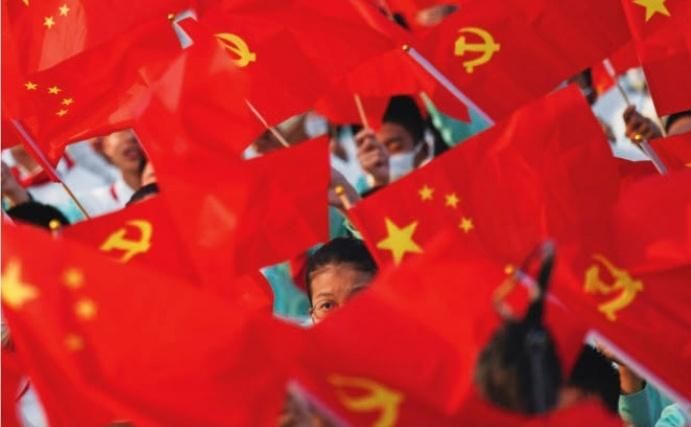
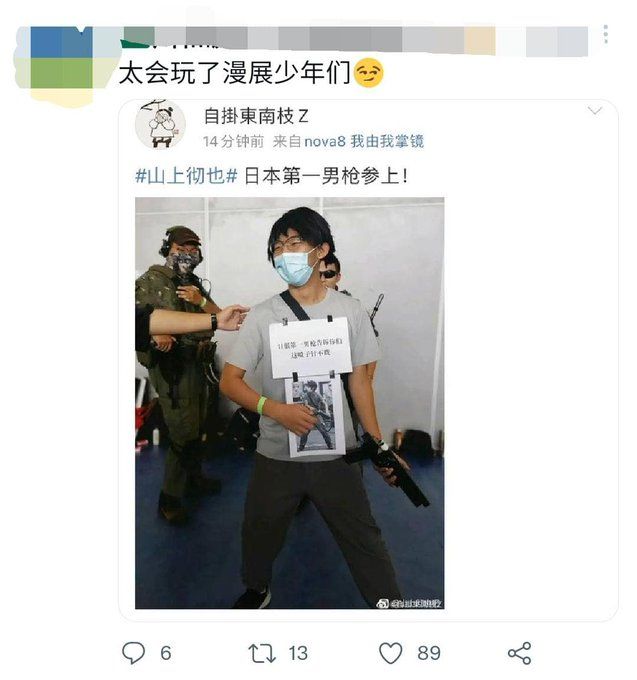
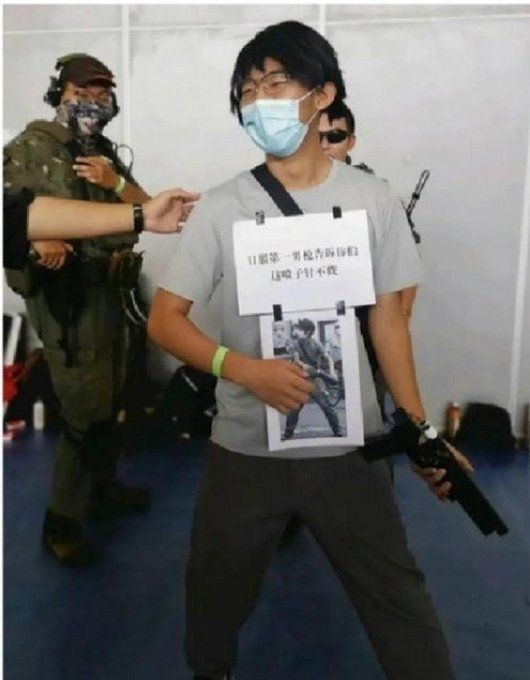
喜欢我的作品吗?别忘了给予支持与赞赏,让我知道在创作的路上有你陪伴,一起延续这份热忱!

- 来自作者
- 相关推荐